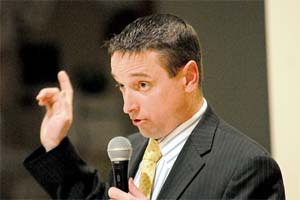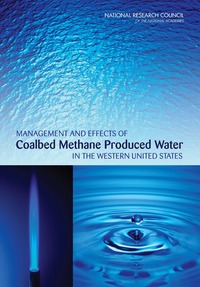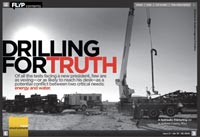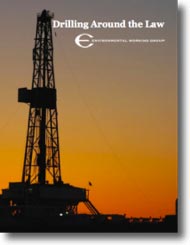Biblio
Residents of others states are issuing words of warning for New Yorkers who may soon allow companies to use the "fracking" process to drill for natural gas.
I live and work in Marcellus shale ground zero -- central New York State, just south of the Finger Lakes, one of the biggest and best watersheds in the hemisphere. My home is in economically challenged, mostly rural Tioga County, and I work in Tompkins County. Almost all our neighbors for several miles around have signed gas leases. I participate regularly and actively as a client, colleague, patient, or volunteer with businesses, organizations, and institutions in 19 other New York counties.
I have been economically poor and landless, economically comfortable and landless, comfortable and landed, and poor and landed. I've been rural, suburban, and urban. And I've spent most of my adult life paying state and local taxes in New York State (and a whole lot of national taxes, most of which have gone toward things I do not condone).
Writer Maura Stephens lives in the hills outside Spencer, New York. She wrote this using voice recognition software.
Radio Broadcast. Interview with Mayor Calvin Tilman.
Vast new natural gas fields have opened up thanks to an advanced drilling technique. While natural gas is a cleaner burning fuel than coal or petroleum, extracting it is still hard, dirty work.
Some people who live near the massive Barnett Shale gas deposit in north Texas, have complaints. Health and environmental concerns are prompting state regulators to take a closer look.
Includes transcript. 7 min. 18 sec.
See: Dish Mayor Calvin Tilman Testifies at Railroad Commission - Oil and Gas Lawyer Blog.
See: How Should We Do the Mountain?: Who the heck is Calvin Tilman?
It will be interesting to see how the environmentally sensitive French react to the widespread use of the controversial hydraulic drilling technology known as “fracking” on their home turf.
Toreador Resources, a Texas oil company, has been awarded drilling rights to 750,000 acres of the Paris Basin, its licenses stretching for hundreds of kilometers from St Dizier, on the edge of the Champagne region, to Montargis, just south of the royal palace of Fontainebleau according to an article in The Australian.
Craig Mackenzie, chief executive of the Dallas based Toreador Resources is reported as saying the company wants to start drilling three pilot wells early in 2010, at a cost of US$30million, and to be producing oil from them by the end of the year.
Gas drilling companies such as Halliburton say the gas drilling technique known as hydraulic fracturing, or fracking, is safe, but opponents contend it pollutes groundwater with dangerous substances.
Now, new evidence has emerged possibly linking natural gas drilling to groundwater contamination. ProPublica journalist Abrahm Lustgarten reports federal officials in Wyoming have found that at least three water wells contain chemicals used in hydraulic fracturing.
Pennsylvania environment officials are racing to clean up as much as 8,000 gallons of dangerous drilling fluids after a series of spills at a natural gas production site near the town of Dimock last week...
...The incident is the latest in a series of environmental problems connected to Cabot’s drilling in the Dimock area. Last winter, drinking water in several area homes was found to contain metals and methane gas that state officials determined leaked underground from Cabot wells. And in the spring, the company was fined for several other spills, including an 800-gallon diesel spill from a truck that overturned.
Site includes extensive background information.
Twenty-three days after EnCana completed hydraulic fracturing operations on the F11E, the liner is removed, some of the sludge is pumped out and the remainder - perhaps 70 barrels or more - is dozed in.
For over a year, at Journey of the Forsaken., I've been documenting EnCana's aggressive and irresponsible development of 60 natural gas wells around our home and the infamous area of the 2004 West Divide Creek natural gas blowout.
Lisa Bracken. 2009.
"If one of the pumper trucks had overturned on the county road, spilling this stuff into the environment, a hazardous materials unit would have responded, sequestered the area, potentially evacuated citizens and employed measures to safeguard first responders, citizens and the environment.
But because this is a hydraulic fracturing waste pit, out of sight of the public and on private land (owned, coincidently, by EnCana) it is simply covered up."
See: Lisa Bracken. Journey of the Forsaken.
New York Times Editorial. Published: November 2, 2009.
Among the many dubious provisions in the 2005 energy bill was one dubbed the Halliburton loophole, which was inserted at the behest of — you guessed it — then-Vice President Dick Cheney, a former chief executive of Halliburton.
It stripped the Environmental Protection Agency of its authority to regulate a drilling process called hydraulic fracturing. Invented by Halliburton in the 1940s, it involves injecting a mixture of water, sand and chemicals, some of them toxic, into underground rock formations to blast them open and release natural gas.
Hydraulic fracturing has been implicated in a growing number of water pollution cases across the country. It has become especially controversial in New York, where regulators are eager to clear the way for drilling in the New York City watershed, potentially imperiling the city’s water supply. Thankfully, the main company involved has now decided not to go ahead.
The safety of the nation’s water supply should not have to rely on luck or the public relations talents of the oil and gas industry. Thanks in part to two New Yorkers — Representative Maurice Hinchey and Senator Charles Schumer — Congress last week approved a bill that asks the E.P.A. to conduct a new study on the risks of hydraulic fracturing. An agency study in 2004 whitewashed the industry and was dismissed by experts as superficial and politically motivated. This time Congress is demanding “a transparent, peer-reviewed process.”
New York Times Editorial. Published: October 16, 2009.
Regulators must amend the rules to bar drilling in the New York City watershed: a million acres of forests and farmlands whose streams supply the reservoirs that send drinking water to eight million people.
Accidental leaks could threaten public health and require a filtration system the city can ill afford...“fracking” has been implicated in hundreds of cases of impaired or polluted drinking water supplies in states from Alabama to Wyoming.
This booklet provides an introduction to drinking water issues. It draws from a body of independent, peer-reviewed expert consensus reports from the National Research Council to provide an overview of public water supply and demand, water management and conservation, options for the government and the private sector, and the economic and ecological
aspects of drinking water.
See the Division of Earth and Life Studies.
Key Finding
Authoring Organizations
Joaquin Sapien and Sabrina Shankman. December 29, 2009 ProPublica.
Environmentalists, state regulators and even energy companies agree that the problem most likely to slow natural gas drilling in the Marcellus Shale in New York is safely disposing of the billions of gallons of contaminated wastewater the industry will produce...
...Of the six injection wells that operate in New York, only one is licensed to accept oil and gas wastewater. It's owned by Lenape Resources Inc., which uses it exclusively for wastewater from its own gas fields [near Rochester, NY].
See: Do the natural gas industry’s surface water withdrawals pose a health risk?
Abrahm Lustgarten. Flypmedia. Issue 21. January 16-29, 2009. "Drilling for Truth". Page 11.
Includes photos, graphics and videos.
Experimental Flash based interactive online magazine. Last updated Fall 2009. On April 19, 2010, Flyp announced that it will close.
See: Drilling Wastewater Disposal Options in N.Y. Report Have Problems of Their Own - ProPublica
Dusty Horwitt. (2009). "Drilling Around the Law Report." Environmental Working Group. 24 pages.
Contains extensive bibliography.
Companies that drill for natural gas and oil are skirting federal law and injecting toxic petroleum distillates into thousands of wells, threatening drinking water supplies from Pennsylvania to Wyoming. Federal and state regulators, meanwhile, largely look the other way.
--The mission of the Environmental Working Group (EWG) is to use the power of public information to protect public health and the environment. EWG is a 501(c)(3) non-profit organization, founded in 1993 by Ken Cook and Richard Wiles. Includes the EWG Action Fund, a 501(c)(4) organization that advocates on Capitol Hill for health-protective and subsidy-shifting policies.
Natural gas drilling in the Marcellus Shale Formation is threatening our health, and our water quality. Local resident gives her account of drilling in her community.
Daniel Gilbert. "Underfoot, Out of Reach: A series on the conflicts over Southwest Virginia's natural gas wealth." Virginia Tri-Cities.com. (online).
Beneath the surface of seven Southwest Virginia counties lie pools of natural gas worth more than a billion dollars a year. Some of this gas belongs to landowners forced by the state to lease their mineral rights to private energy corporations to develop. But instead of putting royalties into the pockets of mineral owners, the state funnels thousands of dollars every month into an escrow fund that royalty owners cannot monitor or access without clearing enormous legal hurdles.
While the system has vastly expanded production of natural gas in Virginia, it has devoted scant resources to ensuring that companies make the required payments into escrow, which in recent years has ballooned to more than $24 million. The result is that companies can produce gas for years without ever filing the necessary paperwork for royalties to be escrowed, and virtually no one notices that hundreds of individual accounts in escrow each month receive no deposits even though the corresponding gas wells are producing gas, a Bristol Herald Courier investigation finds.
To view the special program "The Paper that Made a Difference", produced by WJHL 11Connects, click here for part one, and here for part two of the program.
Articles in this series:
Part Three: The Virginia Supreme Court Weighs In
Part Four: Coal Goes on the Offensive
Part Five: From Crisis to Sustained Loss
Part Six: What is Missing from Escrow?
Part Seven: An Audit Long Delayed
Part Eight: Sue, Split or Do Nothing
Dig Deeper:Resources and links for more information
Do I have money in escrow? How to use our database and determine if you may have money in escrow.
View the members of and contact information for the Virginia Gas and Oil Board
Graphics:
Hydraulic Fracturing
Bristol Herald Courier
How Forced Pooling works
Search our Database for information on escrow accounts, with balances each month, current to March 2010.
See: Tom Vanderbilt. "Paper Trail." Time. Feb. 14, 2011.
Filmmaker Josh Fox of WaterUnderAttack.Com shows America how to speak truth to power, and leads us in the required revolution. "I know this is a farce, " he tells DEC at the public hearing they are required to do before shoving this crap down our throats. "You didn't listen to us before and you probably won't listen to us again. But we are willing to engage in civil disobedience."
See Gasland Trailer and See PBS interview with filmmaker Josh Fox.
See: Drilling Isn't Safe.




















